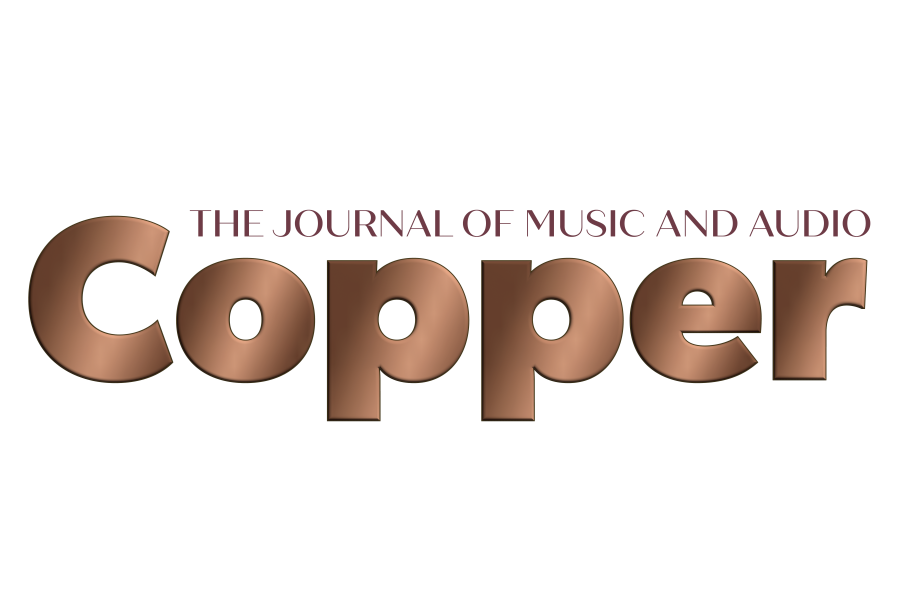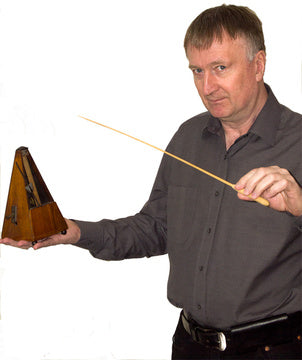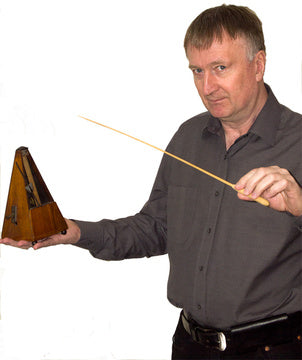Copper
Close Your Eyes
All too often, as audiophiles, we are torn between listening to the music that we like to listen to because of its musical qualities, and music that we appreciate for...
Brainz The Size of a Planet, Part 2
In the last edition of Copper, I introduced MusicBrainz, a crowd-sourced, free-to-use database of metadata for recorded music. From a skeptical beginning, I have come to appreciate that MusicBrainz is actually a...
Like a Circle in a Spiral
On a piano keyboard, most of us know that all the white notes are identified by the letters A–G, while the black notes are the sharps and flats … written...
Of Mirrors, and Combs
Mirror, mirror, on the wall… Here’s a quick challenge for you. When you look at something in a mirror, why is the image always reversed left-to-right, and never top-to-bottom? Think...
Lord of the Ring
Sir Georg Solti was one of the preeminent conductors of the latter half of the 20th Century. Many conductors are polarizing figures, particularly among the musicians over whom they hold...
Value For Money?
Upgrading your Hi-Fi equipment can be both deeply satisfying, and deeply unsatisfactory, and both at the same time. Satisfying, because you have invested in something that you have either wanted...
What Is a Symphony?
Most of you who do not make a habit of listening to classical music will have heard of a Symphony, and know that it is some sort of portentous orchestral...
Two's a Compliment
[The article deals with two’s complement, but the title was spelled as it is as a bit of a joke by Richard. So—no emails to Ye Olde Editor complaining of...
Whack-a-Mole
As 1936 dawned in Soviet Russia, Joseph Stalin had already been in power for over ten years, and the first great purge was already well under way. It was a dangerous time...
Tim's Vermeer
Not long ago, I watched a documentary on Netflix from Sony Classics called Tim’s Vermeer. It was a profoundly interesting program, one I felt was worth writing about. I urge you to seek...
Happiness is a Warm Bun
At least it can be, when that bun is freshly baked and straight from the oven. And, happily for me, my wife bakes a pretty mean bun! But can you...
The Thrill of the Chase
I had a friend named Steve (not his real name). He was originally my financial adviser, and at one time we started looking at opportunities to go into business together. ...
Not Patently Obvious
And now for something completely different – a brief detour into an area which is not especially audio-related, but which I’m hoping you might find interesting. Ever since 1989 I...
Why Moore's Law Should Blow Your Mind
Most of you will be familiar with Moore’s Law, formulated by Gordon E. Moore, the founder of Intel, waaaaay back in 1965. Imagine, if you can, the state of electronics components technology...
Sample Rate Conversion
Question: How does sample rate conversion work? I get asked this often, and the answer, like all things pertaining to digital audio, is both simple and complicated depending on how...
Jack the Dripper
Most aspects of modern life at the personal level tend to operate on the basis of meritocracy. The better you are at something, the more likely you are to be...
Doh! A Deer!
When I was a kid, growing up in a rough area of Glasgow, we were all taught music at elementary school. I have a memory going back to about age...
The Final Frontier
Consider for a moment the Fourier Transform, which I discussed back in Copper # 18. Hands up if you think they’re tough to understand! I want to open your eyes to the...
Did Fred Flintstone Have Digital Audio?
I am listening to one of the earliest high-resolution digital recordings ever made. It is an emotionally powerful recording, if not quite in the way you might be interpreting that...
The Absolute Sound
Let me describe something I was very fortunate to be able to try one time, but which very few of us will get the opportunity to experience. I am talking...
Preposterous Nonsense!
Back in Issue 22, in response to my column “Purer, More Perfect Sound”, reader tortuga_Bob made mention of the ‘Crown Jewels’ argument often put forward by the majors to describe their Studio...
A Brief History of Life, The Universe, and Ever...
Episode IX – Apocalypse Now? It is my contention that the music industry – by which I mean both the creation and consumption of music – is ripe for a...
Taking FLAC
You hear and read a lot of strange stuff in the world of high-end audio. It can be hard to sift through what is real and what is rubbish. Perhaps...
Cardinal Sinc
PCM encodes audio as a set of samples, each representing as closely as possible the actual amplitude of the audio waveform at some specific instant in time. Recreating the audio...
Purer, More Perfect Sound
I have spent a lot of time focusing on the Red Book standard of CD Audio, which calls for 16-bit data at a 44.1kHz sample rate. In doing so, I...
A Case of the Jitters
Let’s take our good old standby, the Red Book standard of CD Audio, where we sample using 16-bit data at a 44.1kHz sample rate. This sample rate implies a series...
To Be or Not To Be Lossless
What does “lossless” mean in audio terminology? It seems like a straightforward question, and you will undoubtedly have an answer at the ready that says something along the lines of...
Fifty Years After
Back in 2000, Dr. Michael Unser of the Swiss Federal Institute of Technology in Lausanne, published an interesting technical paper entitled “Sampling – 50 years after Shannon”. In this paper...
Transformation
What is the biggest, most fundamental difference between Mathematics and Physics? I would say that it is the fact that Mathematics is absolute. Let me put it this way, our...
Sigma–Delta Modulators – Part III
At this point I promised to conclude my mini-series on SDMs by touching on some of the differences between DSD and PCM formats. Much has been written about this, and...
Sigma Delta Modulators Part II
In my last column, I wrote about how a SDM might be used to faithfully reconstruct an incoming signal, even if its output is constrained to an apparently hopelessly reduced...
Sigma–Delta Modulators - Part I
I have mentioned Sigma–Delta Modulators (SDMs) in this column before. These are, in effect, complex filter structures and they are used to produce DSD and other bitstreams. I know I...
The Pepsi Challenge
With the rise of computer-based high-end audio playback, a very interesting question is whether it is best to perform volume control in the digital or analog domain. I thought I...
Conversion Conversation
Today’s DACs, with a few very rare (and expensive) exceptions, all use a process called Sigma Delta Modulation (SDM, sometimes also written DSM) to generate their output signal. A simplistic...
My Kingdom for a DAC
One of the nice things about digital audio is that it’s so simple to understand. We ‘sample’ (measure) the analog waveform many tens of thousands of times a second and...
Cocktail Party
You will all know the old chestnut where, if you focus clearly, it is often possible to pick out one individual conversation from among the hubbub of a noisy cocktail...







